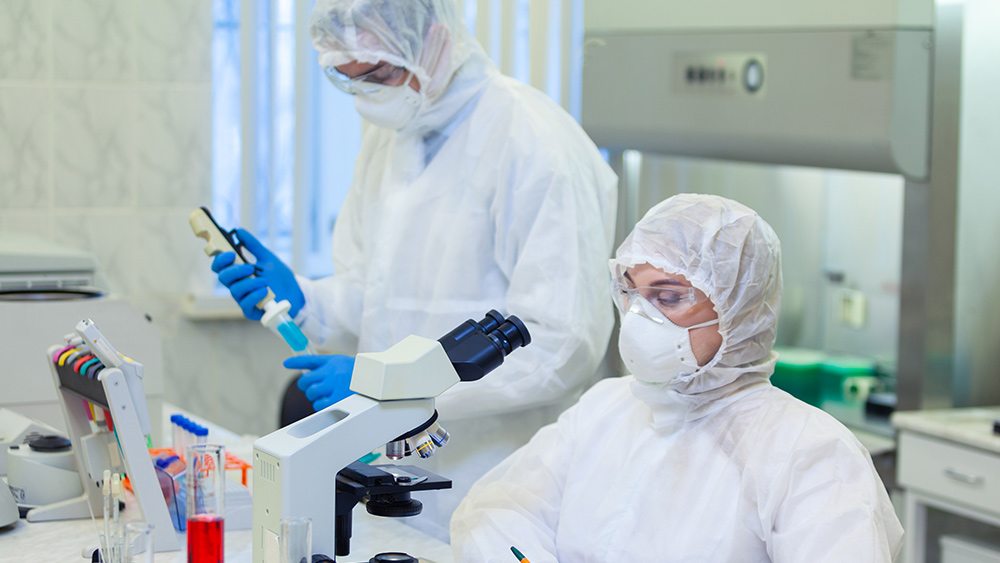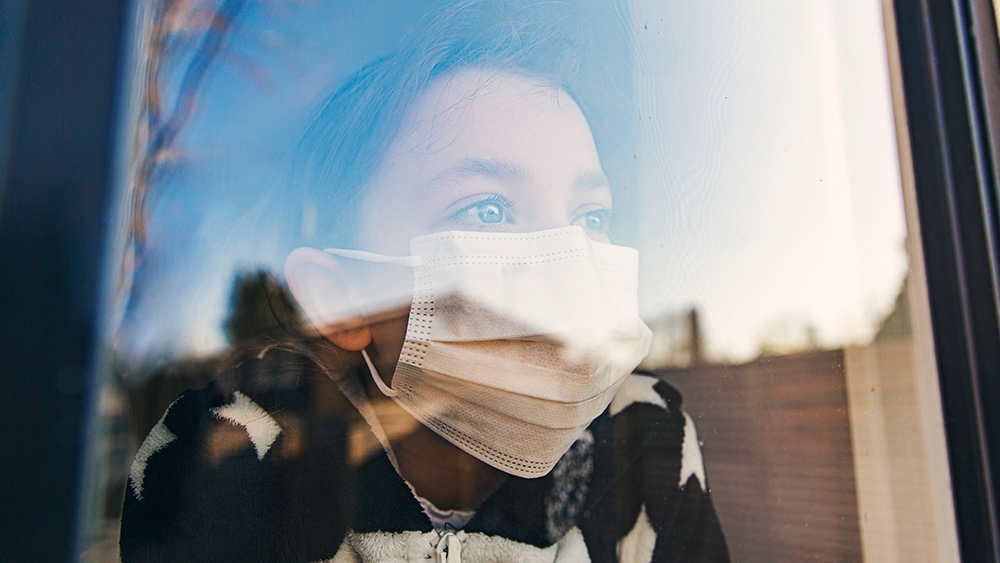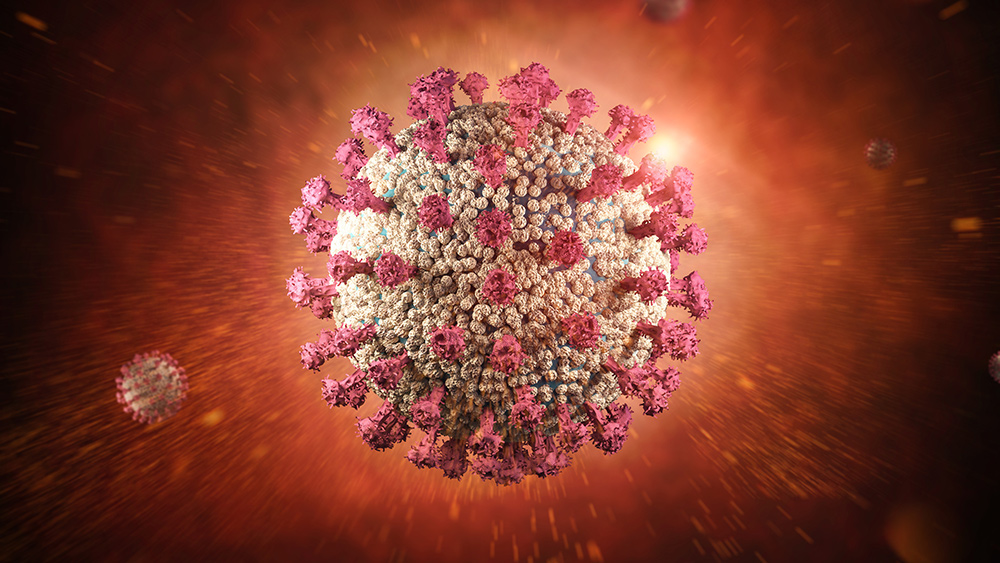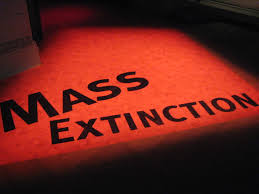BIOWAR CABAL: Partners of Fauci-funded EcoHealth Alliance that directed gain-of-function weaponization research include US and WHO officials
11/12/2021 / By Mary Villareal

EcoHealth Alliance, a New York-based nonprofit that used funds from the National Institutes of Health (NIH) to work with the Wuhan Institute of Virology (WIV), counted high-ranking American government officials as partners.
This comes out after the NIH admitted that EcoHealth carried out gain-of-function research with the Chinese military-linked Wuhan lab and failed to report its findings to the federal agency. Gain-of-function research, espoused by EcoHealth President Peter Daszak, increases the virulence, lethality and transmissibility of viruses.
National Institute of Allergy and Infectious Diseases (NIAID) Director Anthony Fauci appears to retain close relationship with Daszak even after the government stopped funding EcoHealth last year. NIAID is the sub-agency of the NIH that awarded the grant to EcoHealth’s research on bat coronavirus at WIV.
Three officials from the Centers for Disease Control and Prevention (CDC) and one from the NIH are listed as active partners of EcoHealth on the group’s website.
Dr. Rima Khabbaz, the director of the CDC’s National Center for Emerging and Zoonotic Infectious Diseases, has been listed as one of the group’s official partners since September 2012 – two years before the NIH funded the bat coronavirus research at WIV.
CDC Bio-surveillance Coordinator Captain Jason Thomas and Molecular Biology Section of the Special Pathogens Branch Chief Dr. Stuart Nichol have also been listed as partners since April 2015.
Dr. Heinz Feldmann, a senior investigator at the NIH, has also been listed as a partner of EcoHealth since April 2015. His NIH biography describes him as a “laboratory expert on high containment viruses.”
All of these federal officials are classified as “Science and Policy Advisors” at EcoHealth. Other advisors include the deputy director for surveillance and epidemiology at the Bill & Melinda Gates Foundation and World Health Organization (WHO) officials.
NIH officials aware of gain-of-function research at Wuhan lab
Detailed notes taken by congressional staff on NIH communications showed that agency staff had unusual exchanges with Daszak since May 2016, discussing experiments that his group was planning to conduct under an NIH grant titled “Understanding the Risk of Bat Coronavirus Emergence.”
EcoHealth Alliance was entering the third year of its five-year $3.1 million grant, which included research with the WIV and other partners. A 2016 progress report also described to the NIH its plans to carry out two-planned experiments infecting humanized mice with hybrid viruses, or chimeric viruses.
However, the plans triggered concerns at the NIH and two staff members wrote to EcoHealth Alliance to say that the experiments “appear to involve research covered under the pause,” referring to a temporary moratorium on the funding for the gain-of-function research that would be reasonably anticipated to make MERS and SARS viruses more pathogenic or transmissible in mammals. (Related: Fauci’s NIAID awarded the grant that funded Wuhan lab to genetically modify bat-based coronaviruses.)
One of the experiments that EcoHealth Alliance proposed involved making chimeras from the MERS virus. The other used chimeras developed from bat viruses related to SARS. The researchers then went on to infect the genetically engineered mice with the altered viruses.
The NIH staff was initially intent on enforcing the funding pause, but the two administrators requested additional information from EcoHealth Alliance within 15 days and noted that the next round of funding would be withheld until the information was received. They also asked for detailed descriptions of changes that would allow the researchers to pursue their aims without the need to conduct dangerous experiments.
While it is not unusual for grantees to communicate with their federal program officers, the communications of this matter did not appropriately reflect the gravity of the situation.
“The discussions reveal that neither party is taking the risks sufficiently seriously,” said Jesse Bloom, a virologist at the Fred Hutchinson Cancer Research Center. “MERS-CoV has killed hundreds of people and is thought to pose a pandemic risk, so it’s difficult to see how chimeras of MERS-CoV with other high-risk bat coronaviruses shouldn’t also be considered a pandemic risk.”
Get more news and updates about the COVID-19 virus at Pandemic.news.
Sources include:
Submit a correction >>
Tagged Under:
Anthony Fauci, CDC, chimeric viruses, conspiracy, coronavirus, corruption, covid-19, deception, EcoHealth Alliance, gain-of-function experiments, infections, NIH, outbreak, pandemic, SARS-CoV-2, treason, Wuhan lab
This article may contain statements that reflect the opinion of the author
RECENT NEWS & ARTICLES
Infections.News is a fact-based public education website published by Infections News Features, LLC.
All content copyright © 2018 by Infections News Features, LLC.
Contact Us with Tips or Corrections
All trademarks, registered trademarks and servicemarks mentioned on this site are the property of their respective owners.





















